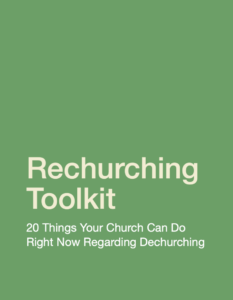Some people love change. Others hate it. For most of us, though, change is both a challenge and also an adventure.
There are various kinds of change, of course. Some changes come in the natural progression of life, like moving from one grade to the next. Other changes come from leaders whose decisions affect our lives. Still others come from the sheer shiftiness of life in a tectonic world, whether those shifts are subtle or dramatic.
Ultimately, though, our hearts determine how we respond to change, since the heart is mission control center for human functioning: “Keep your heart with all vigilance, for from it flow the springs of life” (Prov. 4:23). Jesus teaches:
The good person out of the good treasure of his heart produces good, and the evil person out of his evil treasure produces evil, for out of the abundance of the heart his mouth speaks. (Luke 6:45)
What we think, desire, and do—including the way we process change—all rises from our hearts.
With that in mind, here are four feelings we often experience in the midst of change—and four contrasting responses we can choose.
1. Nostalgia
Nostalgia is the sweetening of memories over time. Nostalgia is a great gift, but also a powerful drug. Take too much of it (or take it too often) and you’ll be addicted to the past.
Comparison is a common byproduct of nostalgia. We compare how things were to how things are, the glorious past with the inferior present. Of course, with the syrup of nostalgia ladled all over our memories, the present never tastes nearly as good. Yet the wise man insists:
Say not, “Why were the former days better than these? For it is not from wisdom that you ask this.” (Eccles. 7:10)
Gratitude is a much wiser response to nostalgia. Instead of comparing the past with the present, we should thank God for the past, and expect the present to be filled with his faithfulness just the same. For example, Ephesians 5:18–20 tells us to “be filled with the Spirit . . . giving thanks always and for everything to God the Father in the name of our Lord Jesus Christ.”
Gratitude for God’s blessings in the past helps us see his hand in the present, since he’s the same yesterday, today, and forever.
2. Uncertainty
As things change, we can also experience uncertainty. We’re not sure what’s going on, and we don’t know exactly where we’re headed. Even when we know the big picture, the inherent uncertainty can leave us floundering.
Fear is a common response to uncertainty. Of course, a certain kind of trepidation is expected in a new venture. But often our fears inflate and expand, filling us with debilitating anxieties that are as unrealistic as they are unhealthy. To the fearful among us, God might say what he said to Joshua, a new leader on his way toward massive change:
Have I not commanded you? Be strong and courageous. Do not be frightened, and do not be dismayed, for the Lord your God is with you wherever you go. (Josh 1:9)
When you know God is leading you forward, a better way to respond to uncertainty is anticipation. Later in their history, God told his people, “Behold, I am doing a new thing; now it springs forth, do you not perceive it?” (Isa. 43:19). Even though they’d be exiled far from home, God pointed toward his coming redemption and urged them to keep their eyes open for what he would do.
3. Confusion
In the midst of change, the uncertainty we experience can quickly turn to confusion. Maybe we don’t understand our new leaders, or we feel like we’ve gotten mixed messages, or we’ve fallen into speculations and assumptions, which always twist up our thinking.
In our confusion, it’s easy to give in to frustration. Frustration is understandable at times, but you don’t want to let it become the norm. Because once irritation makes itself at home, we become the most grumbly version of ourselves, unable to experience much besides our aggravated feelings.
There’s a much better response to confusion: communication. Asking our questions, communicating our concerns, listening well, taking time to process—these are all wise ways to work through the frustration that can build when we feel confused about the changes we’re experiencing.
4. Excitement
There’s an entire demographic, of course, that sees change as exciting. Whether it be wanderlust or a divine calling, there are plenty of times when the prospects of change generate more excitement than any other emotion. We’re excited for the new opportunity, the new job, the new relationship, the new vision or cause or responsibility.
But when you’re in a big group undergoing change and you’re excited about what you’re seeing, it’s easy to stay a spectator. New developments are interesting to watch, and the unpredictability can keep you glued to the screen without jumping in to serve.
Yet the excitement of new beginnings should turn you into a participant. You too have gifts and talents and resources to throw into the mix. You too should join in sacrificing for the cause you’re so excited to see unfold. You too can help shoulder the load, since, as Peter Drucker puts it, every exciting vision immediately translates into hard work.
The apostle Paul urges us, “Do not be slothful in zeal” (Rom. 12:11). And because of our coming resurrection, he invites us to be found “always abounding in the work of the Lord, knowing that in the Lord your labor is not in vain” (1 Cor. 15:58).
Dramatic Difference
Imagine you belong to a good church undergoing significant change. Now picture most people in your group responding to their nostalgia with comparison, their uncertainty with fear, their confusion with frustration, and their excitement with being mere spectators.
Now imagine, instead, everyone making the conscious decision to cultivate a spirit of gratitude for the past, a sense of anticipation about the future, and a commitment to communicate when things are unclear or confusing, all while investing their talents and energy as eager participants in the new chapter God’s writing into your lives together.
The difference would be dramatic, even transformative. Because the most important change happens in the heart.
20 Things You Can Do Right Now to Prevent Dechurching
 We’re currently experiencing the largest and fastest religious shift in the history of the United States. But there are practical things we can do inside our local churches.
We’re currently experiencing the largest and fastest religious shift in the history of the United States. But there are practical things we can do inside our local churches.
Jim Davis and Michael Graham have commissioned the largest and most comprehensive study of dechurching in America. Informed by their findings, they’ve written a book and developed this corresponding toolkit with resources to help you address the dechurching phenomenon.
We’re delighted to offer you the ‘Rechurching Toolkit’ for FREE today. Click on the link below to get instant access to this resource—worth $100—and be equipped to understand and address the issues behind dechurching.


































